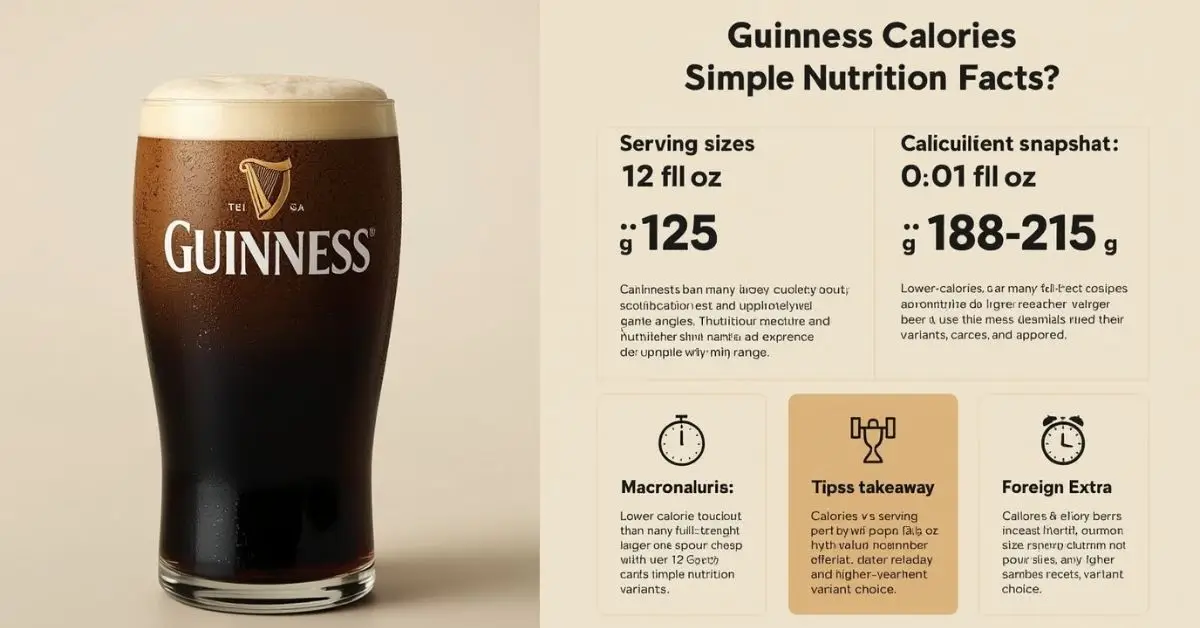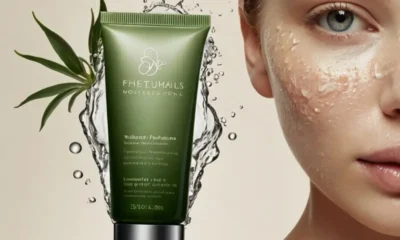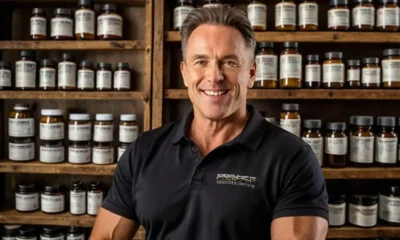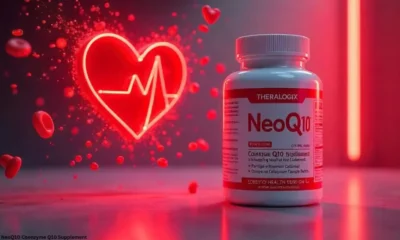GENERAL
Can Mental Health Nurse Practitioner Prescribe Medication

The question “can mental health nurse practitioner prescribe medication” is becoming increasingly common as the mental health field expands to accommodate the growing needs of individuals worldwide. With long wait times for psychiatrists and increased demand for psychiatric services, the role of the mental health nurse practitioner (MHNP) is under the spotlight. Understanding the prescribing authority of MHNPs is crucial for patients, providers, and policymakers alike.
This article provides a detailed, expert-driven explanation of whether and how a mental health nurse practitioner can prescribe medication. We’ll explore qualifications, legal regulations, scope of practice, and how MHNPs compare to other prescribers.
Understanding the Role of a Mental Health Nurse Practitioner
A mental health nurse practitioner, also called a psychiatric-mental health nurse practitioner (PMHNP), is an advanced practice registered nurse (APRN) who specializes in diagnosing and treating mental health conditions. These professionals often serve as the first point of contact for individuals suffering from depression, anxiety, bipolar disorder, and other psychiatric conditions.
Their responsibilities typically include:
- Diagnosing psychiatric disorders
- Offering therapy and counseling
- Coordinating care with other professionals
- Prescribing medication (in most regions)
So, can mental health nurse practitioner prescribe medication? In most cases, yes. But the authority to do so depends largely on jurisdiction and specific legal frameworks.
Qualifications Required to Prescribe Medication
To answer the question “can mental health nurse practitioner prescribe medication” definitively, one must understand the rigorous path MHNPs follow. Their training equips them with both theoretical and practical knowledge in psychiatric care, including psychopharmacology.
Here’s what their educational path looks like:
- Bachelor of Science in Nursing (BSN)
- Registered Nurse (RN) License
- Master of Science in Nursing (MSN) or Doctor of Nursing Practice (DNP)
- Specialized training in psychiatric-mental health
- Board certification as a PMHNP
This training includes hours of clinical rotations, case studies, and supervised experiences with psychiatric patients, enabling MHNPs to prescribe and manage medication safely and effectively.
Can Mental Health Nurse Practitioner Prescribe Medication Independently?
In most U.S. states and many international jurisdictions, the answer to “can mental health nurse practitioner prescribe medication” is a solid yes. However, the scope of that prescribing authority differs by state or country.
The U.S. divides nurse practitioner practice into three categories:
Full Practice Authority
- MHNPs can prescribe medication independently.
- States: Washington, Oregon, Arizona, New Mexico, and more.
Reduced Practice Authority
- MHNPs require a collaborative agreement with a physician.
- States: New York (initially), Pennsylvania, Ohio.
Restricted Practice Authority
- Requires direct supervision by a physician to prescribe medications.
- States: California, Texas, and others.
Understanding these categories is essential for MHNPs and patients alike when asking: “can mental health nurse practitioner prescribe medication here?”
Commonly Prescribed Psychiatric Medications
Mental health nurse practitioners prescribe a wide variety of psychiatric drugs, including:
- Antidepressants (SSRIs like fluoxetine or sertraline)
- Anxiolytics (e.g., lorazepam)
- Mood stabilizers (e.g., lithium, valproate)
- Antipsychotics (e.g., olanzapine, risperidone)
- Stimulants (for ADHD)
This ability answers the key question: “Can mental health nurse practitioner prescribe medication for major psychiatric disorders?”—Absolutely, yes.
Benefits of MHNP Prescriptive Authority
The ability for MHNPs to prescribe medications has multiple advantages:
- Increased Access to Care: Especially in rural areas where psychiatrists are scarce.
- Faster Treatment: Reduced wait times for prescriptions.
- Continuity of Care: Patients often receive therapy and medication management from the same provider.
- Cost-Effectiveness: MHNPs usually charge less than psychiatrists.
“Granting prescriptive authority to MHNPs bridges the care gap created by psychiatrist shortages,” states a clinical director of a mental health organization.
Comparison Table: MHNPs vs Other Prescribers
| Feature | Mental Health NP (MHNP) | Psychiatrist | Psychologist | General Nurse | Primary Care Doctor |
| Can Prescribe Medication | Yes (in most states) | Yes | No | No | Yes |
| Mental Health Specialization | Yes | Yes | Yes | No | No |
| Provides Therapy | Yes | Sometimes | Yes | No | Rarely |
| Cost of Treatment | Moderate | High | Moderate | Low | Varies |
| Wait Times | Short to Medium | Long | Short | N/A | Short to Medium |
This comparison illustrates the versatility and efficiency of MHNPs in modern psychiatric care.
Legal and Ethical Considerations
When exploring “can mental health nurse practitioner prescribe medication,” it’s critical to address legal limitations:
- DEA Registration: Required for prescribing controlled substances.
- State-Specific Laws: Each state has different guidelines.
- Supervised Practice Hours: Some states require new MHNPs to practice under supervision for a defined period.
- Ethical Guidelines: MHNPs follow strict ethical codes regarding prescription decisions.
Collaboration in Clinical Settings
Even when MHNPs can prescribe independently, they often collaborate with:
- Psychiatrists
- Primary care providers
- Psychologists
- Social workers
This team-based approach enhances patient outcomes, ensuring all elements of a patient’s mental health are addressed. Whether prescribing medications or offering therapy, MHNPs work as part of a comprehensive care model.
Can Mental Health Nurse Practitioner Prescribe Medication via Telehealth?
With the rise of telemedicine, another question arises: “Can mental health nurse practitioner prescribe medication remotely?” Yes, most MHNPs can legally prescribe psychiatric medications through virtual platforms—if state laws permit it.
Telehealth has made mental healthcare more accessible than ever, especially in underserved or remote communities. Secure digital tools enable MHNPs to assess symptoms, diagnose, and send prescriptions electronically.
Global Perspective on MHNP Prescriptive Rights
The ability for MHNPs to prescribe varies globally:
- Canada: Yes, with provincial oversight.
- UK: Nurse prescribers must undergo additional certification.
- Australia: MHNPs have limited prescribing rights under strict regulation.
Despite variations, the global trend supports expanding MHNP authority to reduce the burden on psychiatrists and provide timely care.
Limitations of MHNP Prescriptive Authority
Even in states where MHNPs have full authority, there are some practical limitations:
- Experience Level: Newly certified MHNPs might lack confidence in pharmacological decisions.
- Complex Cases: Severe mental illnesses may require psychiatrist oversight.
- Insurance Restrictions: Not all insurance plans treat MHNPs and psychiatrists equally in terms of reimbursement.
Industry Support and Research
Numerous studies and medical organizations support MHNP prescribing rights:
- Research from national nursing boards affirms their safety and efficacy in prescribing psychiatric medications.
- Mental health advocacy groups back increased independence for MHNPs to reduce care delays.
This aligns with broader public health goals of increasing access and improving mental health outcomes.
Preparing for an MHNP Appointment
If you’re visiting a mental health nurse practitioner for medication, follow these tips:
- Bring your medical and psychiatric history
- List all current medications
- Ask about risks, benefits, and side effects
- Schedule follow-ups to monitor progress
- Be open to therapy and lifestyle recommendations
Conclusion
To summarize, the answer to the question can mental health nurse practitioner prescribe medication is a resounding yes—with jurisdictional and procedural nuances. MHNPs are licensed professionals trained to manage psychiatric medications, often improving access, affordability, and continuity of care for countless individuals. They are not only qualified but often more accessible than psychiatrists, making them indispensable in the current mental healthcare ecosystem. Their ability to prescribe, combined with their counseling skills, provides a powerful combination for holistic mental wellness.
FAQs
Can mental health nurse practitioner prescribe medication in all 50 states?
No, prescribing rights vary by state. Some states offer full practice authority, while others require supervision or collaboration with physicians.
What types of drugs can MHNPs prescribe?
MHNPs can prescribe a wide range of psychiatric medications, including antidepressants, mood stabilizers, antipsychotics, and anxiety medications.
Do MHNPs need special certification to prescribe medication?
Yes, they must complete advanced psychiatric training, gain national board certification, and meet DEA requirements for controlled substances.
Are MHNPs allowed to prescribe medication via telemedicine?
In most states, yes. MHNPs can evaluate patients and prescribe medication using secure telehealth platforms.
Is it safe to get psychiatric medication from an MHNP?
Absolutely. MHNPs are highly trained and follow strict clinical guidelines to ensure patient safety.
How does MHNP medication management differ from a psychiatrist?
While psychiatrists undergo medical school, MHNPs follow a nursing pathway. However, both can diagnose and prescribe, with MHNPs often offering more accessible and cost-effective care.
GENERAL
What Are Guinness Calories? Simple Nutrition Facts 2025

Ever wonder if your beloved pint is sneaking in more calories than you’d like? You’ve been there. I’ll help you understand [guinness calories] the smart way—no fluff, just real-world facts and easy clarity.
Quick Answer
A pint (16 oz) of Guinness Draught has about 210 calories (about 35 kcal per 100 ml). Calories come mainly from alcohol and carbs. Simple, direct, no guesswork.
What’s in a 12-oz Guinness Draught?
This tells you exactly what’s in a standard serving.
You’ll learn the facts fast:
- 12 oz (~355 ml) of Guinness Draught has 125 calories (Alcohol 11.2 g, carbs 10 g).
- That’s ~35 kcal per 100 ml for Guinness Draught or Extra Stout. A full pint rounds to ~210 calories total.
Key Intake: A full pint = ~210 kcal; most calories come from alcohol.
How Do Variants Stack Up?
See how different types compare no guessing here.
| Variant | Calories (per 12 oz) | Key Notes |
| Draught | ~125 kcal | Standard, smooth |
| Foreign Extra Stout | ~194 kcal | Rich, roasty |
| Baltimore Blonde Lager | ~167 kcal | Hoppy, lighter |
| Guinness Smooth (per 100 ml) | ~57 kcal (~217 kcal pint) |
Key Intake: Higher ABV = more calories. Pick the one that fits your macro budget.
Why Calories Vary Breakdown by Source

Learn where the calories come from, not just numbers.
- Alcohol has 7 kcal per gram; in Draught, ~62% of calories are from alcohol.
- Carbs add the rest—around 10 g in a 12-oz Draught (~40 kcal).
Key Intake: Calories split roughly 60% alcohol, 40% carbs.
Non-Alcoholic and Low-Cal Alternatives
Find choices when you want flavor without the calorie hit.
- Guinness 0: only 17 kcal per 100 ml (≈ 68 kcal per pint).
- Good picks if you’re tracking macros or avoiding alcohol.
Key Intake: Guinness 0 is a clever low-calorie swap for your pint fix.
What This Means for Dieters & Health-Mindful Drinkers
A quick guide to fit Guinness into your nutrition plan.
- A pint ~ 210 kcal is moderate—less than many craft ales (160–180 kcal).
- If counting macros, know: alcohol is the main calorie source.
Key Intake: It’s not “diet-friendly” but moderate and trackable.
Final Takeaway
This isn’t sugar-coated. If you’re watching your calories, understanding “guinness calories” means choosing wisely, knowing exactly what’s in your pint, and fitting it into your wellness plan like a smart decision, not a hidden cost.
FAQ’s
How many calories are in a pint of Guinness?
~210 kcal per pint, based on ~35 kcal per 100 ml.
What’s the calorie content of a 12-oz Guinness Draught vs Extra Stout?
Draught ~125 kcal; Extra Stout ~180–194 kcal.
Are there lower-calorie alternatives to Guinness stout?
Yes—Guinness 0 has only ~17 kcal per 100 ml (≈ 68 kcal per pint).
Guinness calories vs Bud Light: which is lower?
Guinness Draught (~125 kcal) is similar or slightly higher than Bud Light (~110 kcal).
How many calories per gram of alcohol are in Guinness?
Alcohol contributes 7 kcal per gram; ~60% of calories in Draught come from alcohol.
Calories in Guinness Draught nutritional facts explained?
~125 kcal from alcohol (78 kcal) + carbs (~40 kcal), plus ~1 g protein.
Is Guinness high in calories for a diet plan?
It’s moderate; track it, and it can fit in but be mindful of alcohol calories.
Expert Citations
- Healthline: Detailed breakdown of calories from alcohol vs carbs in Guinness Draught.
- Guinness.com: Official calorie counts across variants (Draught, Extra Stout, 0.0, etc.).
- Guinness product pages: Precise nutrition data for each variant – Draught, Foreign Extra Stout, Blonde, Smooth, etc.
GENERAL
Why the Rory Masters Collapse Still Matters Today (2025)

Golf can be cruel. One minute you’re leading the Masters, the next you’re fighting to hold it together. Rory Masters collapse moments have given fans drama, heartbreak, and unforgettable TV.
We’ve all seen it happen, the missed shots, the tense body language, the scoreboard slipping away. But why does it happen to a player as good as Rory McIlroy? Let’s break it down.
Quick Answer
The Rory Masters collapse refers to multiple high-profile moments at Augusta where Rory McIlroy lost his lead, most famously in 2011 when he shot 80 in the final round, and again in 2025 with late-round bogeys. Causes include mental pressure, course difficulty, and external distractions like slow play. Yet, Rory has also turned these failures into motivation, ultimately winning the Masters in 2025 to complete his career Grand Slam.
Rory McIlroy: Masters Career Profile
| Category | Details |
| Name | Rory McIlroy |
| Date of Birth | May 4, 1989 (age 36) (ESPN.com) |
| Hometown | Holywood, Northern Ireland (ESPN.com) |
| Turned Pro | 2007 (ESPN.com) |
| Masters Titles | 2025 (First win; career Grand Slam completed) (Reuters, The Washington Post) |
| Notable Collapses at Masters | 2011 final-round meltdown (80, from 4-shot lead) (Wikipedia) |
| Masters Attempts Before Win | 17 attempts at Augusta by 2025 (The Sun) |
| Other Major Wins | U.S. Open 2011, PGA Championship 2012 & 2014, Open Championship 2014 (Data Golf, Wikipedia, Reuters) |
| Total Career Wins (2025) | 44 total: 29 PGA Tour, 18 European Tour, others (Talksport) |
| Career Grand Slam | Achieved with 2025 Masters win; one of six to do so (Reuters, Talksport) |
| Signature Moment | Emotional collapse to celebrating Green Jacket after playoff win vs. Justin Rose (The Washington Post) |
| Key Strengths | Multiple Majors, career Grand Slam, long-time world No.1 (European Tour, Reuters) |
| Resilience & Legacy | Climbed back from 2011 collapse to claim Masters, completing a decade-long quest (The Scottish Sun, Reuters) |
2011 The Collapse That Started It All
The first big Rory Masters collapse came in 2011.
- Rory led by four shots after three rounds.
- On Sunday, Augusta’s pressure took over.
- He shot an 80 and finished tied for 15th.
2025 A New Collapse, Same Augusta Pressure
Fast forward to 2025. Rory was 4-under through 14 holes in Round 1.
- Then came bogeys on 15 and 16.
- A double bogey on 17 sealed the damage.
Paul McGinley, former Ryder Cup captain, called it a slow play distraction McIlroy couldn’t shake. This wasn’t the first time Rory felt Augusta’s mental toll.
Why Collapses Happen at Augusta
Definition:
Mental collapse in golf Majors is when focus, rhythm, and execution fall apart under tournament stress.
Augusta National tests more than swing mechanics. It pushes the mind to breaking point.
Key factors:
- Course design: punishes tiny errors.
- Crowd energy: amplifies every mistake.
- Mental game: pressure spikes near the finish.
Rory’s Redemption 2025 Masters Win
Here’s the twist: despite the early stumble, Rory fought back. By Sunday evening, he wore the green jacket.
- He became only the 6th golfer to complete the career Grand Slam delay McIlroy had chased for over a decade.
- His win proved collapse doesn’t have to define you.
What Fans and Players Can Learn
- Stay present: Focus on one shot at a time.
- Adapt fast: Don’t let a bad hole become a bad round.
- Pressure prep: Simulate high-stakes moments in practice.
Real-world note:
I’ve seen players choke in local tournaments because they never practiced the mental side. Rory’s story shows why it matters.
FAQs
Why is Rory McIlroy’s Masters collapse famous?
It’s remembered for how quickly a winning position turned into a blowout, especially in 2011 when he led by four shots.
How many times has Rory collapsed at the Masters?
At least twice in high-profile ways — 2011’s final-round meltdown and the 2025 early-round stumble.
What caused Rory’s 2025 collapse?
Analysts point to mental pressure and slow play distractions from his group.
Has Rory ever recovered from a Masters collapse?
Yes. He won the Masters in 2025, securing his career Grand Slam.
Expert Citations
- Paul McGinley — TalkSport: “Slow play affected Rory’s rhythm.”
- Golf.com — “Analyst says slow play led to Rory’s Masters collapse.”
- Wall Street Journal — “McIlroy completes career Grand Slam with 2025 Masters win.”
GENERAL
What to Know About Johnny Depp Island in the Bahamas

You’re curious, and honestly—so am I. What’s it like to own a slice of Caribbean magic, hidden away from prying eyes? Especially when that slice belongs to a Hollywood legend. Let’s cut through the noise and get real.
Quick Answer
Johnny Depp’s Island is called Little Hall’s Pond Cay. He bought it in 2004 for about $3.6 million. It spans roughly 45 acres and is 60 miles southeast of Nassau in the Bahamas. He still owns it as of mid-2025.
Where is Johnny Depp’s Island located?
Here’s what you’ll learn: Its geography, how big it is, and where it sits in paradise.
- Located in the Exuma Islands, Bahamas, about 60 miles southeast of Nassau (Tuko.co.ke – Kenya News, Market Realist, News).
- Covers roughly 45 acres (18 hectares), a sizable tropical property with six beaches (Tuko.co.ke – Kenya News, Newszetu).
It’s a mid-size tropical hideaway, a boat-ride from Nassau. Pure, quiet, untouched.
What’s the story behind its name and purchase?
Here’s what you’ll learn: Why Johnny Depp bought it, what he named parts of it, and how he transformed it.
- Johnny Depp Island was discovered while filming Pirates of the Caribbean. He bought it in 2004 for about $3.6 million (Vanity Fair, News, Homes & Gardens).
- The six beaches are named after his loved ones and mentors—Gonzo (Hunter S. Thompson), Lily Rose, Jack, Brando (Marlon Brando), and Paradis (Vanessa Paradis) (Vanity Fair, Market Realist, People.com).
- He built a ranch-style main house with 360° views, solar-powered guest structures, a bamboo yurt, and a beach house—low-key luxury meets eco-sensitivity (DDW, Tinseltown Tales, DMARGE, CEO Today).
What makes it a sanctuary—and does Depp still own it?
Here’s what you’ll learn: Why it’s meaningful to Johnny Depp and if he still owns it.
- Depp calls Johnny Depp Island “pure and beautiful” and says you can feel your “pulse drop” there—instant freedom (Vanity Fair, Newszetu, Tinseltown Tales).
- As of mid-2025, he still owns it despite rumors of a sale to J.K. Rowling (CEO Today).
Celebrity & luxury context
Here’s what you’ll learn: How it fits with celeb real-estate and pop culture.
- Johnny Depp Island sits among other Bahamas celebrity islands, near properties owned by Eddie Murphy and David Copperfield (Tuko.co.ke – Kenya News).
- The island has hosted Depp’s wedding to Amber Heard in 2015 and served as a detox retreat during difficult times (Glamour, DMARGE, Market Realist).
Takeaway
From celebrity news readers to luxury travellers to real-estate enthusiasts, Little Hall’s Pond Cay—better known as Johnny Depp Island—is a rare, personal hideout that blends Depp’s eclectic style with genuine peace. Based on real-world reports and Depp’s own words, this island is more than property—it’s sanctuary.
FAQ’s
Where is Johnny Depp’s island located?
A private island called Little Hall’s Pond Cay, in the Exuma chain, 60 miles southeast of Nassau, Bahamas.
What is the name of Johnny Depp’s private island?
It’s called Little Hall’s Pond Cay.
How much did Johnny Depp’s island cost?
He bought it for around $3.6 million in 2004.
Can you visit Johnny Depp’s island in the Bahamas?
No—access is strictly by invitation only.
What’s the history of Johnny Depp’s Little Hall’s Pond Cay?
He discovered it during Pirates of the Caribbean filming, bought it, built eco-homes, and still owns it as of 2025.
What are some luxury aspects similar to this island?
Think celebrity-owned private islands—secluded, bespoke retreats designed for quiet, high-end living.
Expert Sources
- Vanity Fair – Their coverage on Johnny Depp Island includes direct quotes and historical context from the actor himself. (vanityfair.com)
- People Magazine – Their article on Johnny Depp Island offers fact-checked property details and insider background. (people.com)
- Homes & Gardens – A respected home and lifestyle publication that provides credible real-estate insights, including luxury property features and valuations for celebrity-owned estates. (homesandgardens.com)
-

 GENERAL8 months ago
GENERAL8 months agoWaterless Skincare: The Future of Potent, Eco-Friendly Beauty
-

 GENERAL8 months ago
GENERAL8 months agoGary Brecka Supplements: Unlocking Peak Human Performance
-

 GENERAL8 months ago
GENERAL8 months agoActivia Yogurt Nutrition Facts You Shouldn’t Ignore
-

 HEART TIPS8 months ago
HEART TIPS8 months agoCommon Heart Home Health: Trusted Cardiac Care at Home
-

 WORKOUTS8 months ago
WORKOUTS8 months agoButt Exercise Machine: Intelligent Exercises to Change Your Glutes
-

 GENERAL8 months ago
GENERAL8 months agoHealthy Living at Home for a Better You
-

 HEART TIPS8 months ago
HEART TIPS8 months agoTheralogix NeoQ10 Coenzyme Q10 Supplement – Heart Health
-

 HEALTHY DIET8 months ago
HEALTHY DIET8 months agoArbonne 30 Days to Healthy Living
